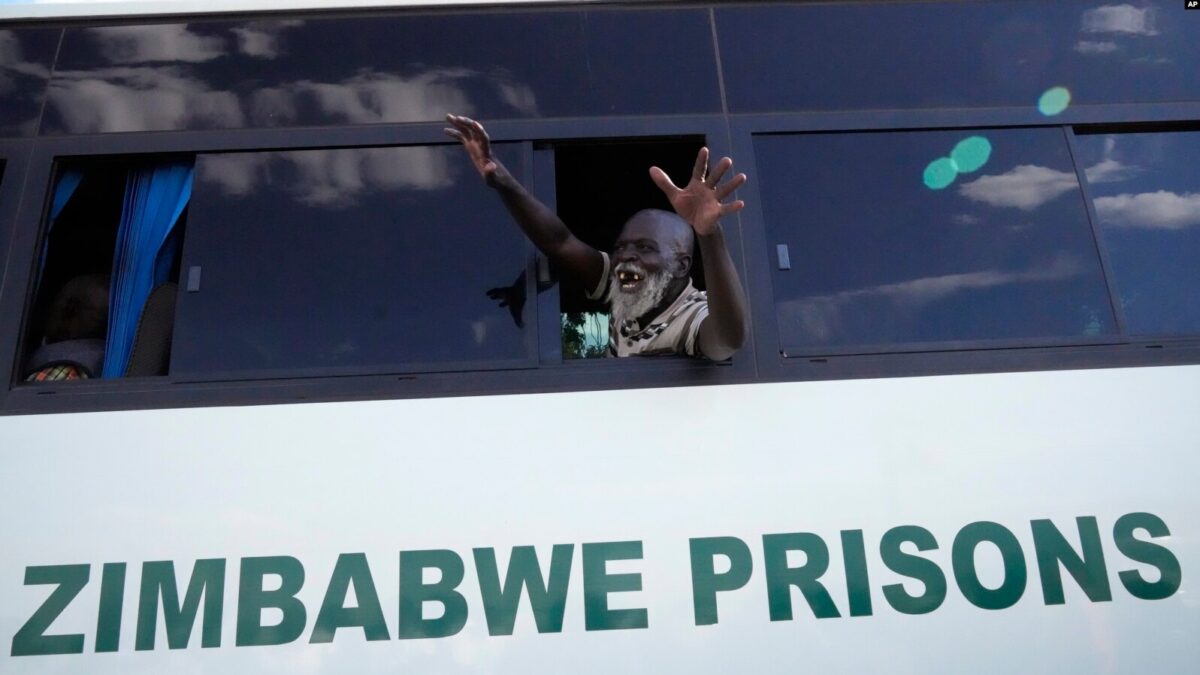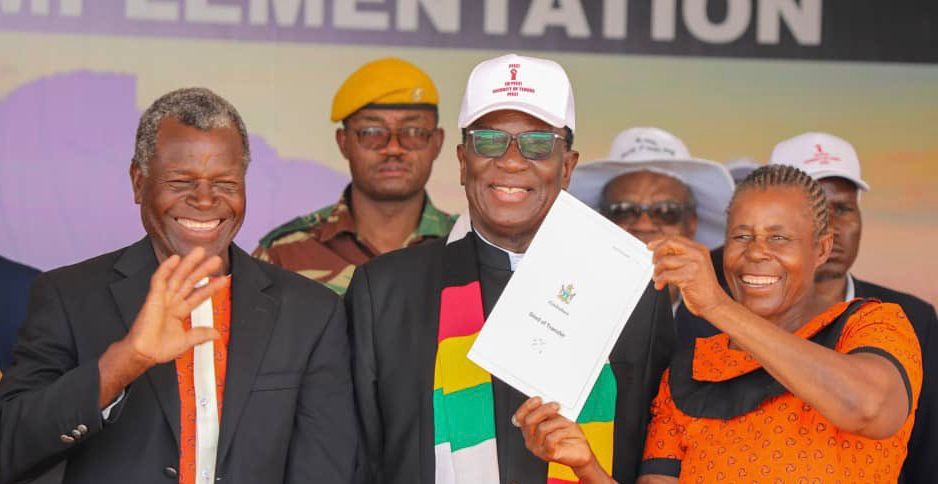HARARE — When Zimbabwe released more than 4,000 prisoners in May in a nationwide amnesty, one man with a white beard and without front teeth stood out among those vigorously celebrating as they walked out of a jail.
He grinned and waved his hands in the air, and shouted the praises of Zimbabwean President Emmerson Mnangagwa, who ordered the amnesty for some offenders to ease congestion in prisons.
“Mnangagwa is honey, my friend. Mnangagwa is sweet,” the man yelled as he attracted the attention of television news cameras at Harare Central Prison in the capital city.
But what first appeared to be an old man being given a second chance at life has transformed into a much more contentious moment for the southern African nation.
The white-bearded man, Bobby Makaza, was convicted of raping a preteen girl and had served four years of a 16-year jail sentence when he was released.
That has prompted a legal challenge from the mother of his victim, who has filed a court case against the president, the prisons service and Makaza, seeking to put him back behind bars because of the devastating impact it has had on their family.
That impact has been aggravated by the fact that Makaza’s face appears to be everywhere on social media in Zimbabwe, with videos of him boisterously celebrating his release and praising the president going viral on TikTok and Twitter, and his “honey” and “sweet” description of Mnangagwa becoming a kind of catchphrase.
Makaza’s conviction for rape is well known in Zimbabwe. He spoke openly about it upon his release and after. Yet in some of their own videos, people have mimicked him and recreated his celebrations, laughing and also referring to the president as “sweet.” Images of his smiling face are being posted with all manner of memes.
The way the convicted rapist of a minor has been so casually portrayed has caused a stern reaction from social justice activists, who worry about the wider picture as they see him become a source of amusement.
The country’s problems with sexual violence against women and girls are generally not taken as seriously as they should be, and this is a stark example of that, the activists say.
“It’s troubling that as a society, we take this as a joke,” said Tendai Mbofana, director at the Zimbabwe Network for Social Justice nongovernmental organization. “What this shows about our society is that we have lost our moral compass when we consider cases of sexual violence against young girls as a joke.”
After his release, a television crew also followed Makaza back to his home village — where his victim, who is now 15, still lives — and interviewed him and recorded him saying “life is sweet” and punching the air in delight.
In court papers, the victim’s mother said they are living in fear now that Makaza is back, the nightmare worsened by the fact that he is close by. He is even walking around boasting about his freedom, the mother said.
“He makes sure that my daughter hears that it’s him and that there is nothing she can do about it,” the mother said in her court papers.
She also said that she had seen some of the social media posts with the smiling face of the man who raped her daughter. Her daughter is traumatized all over again.
The mother’s name is on her court papers but The Associated Press has decided not to publish it to avoid her daughter being identified. The AP typically doesn’t identify victims of sexual abuse.
Lawyers representing the family say that Makaza is 59 years old and ineligible for the amnesty because, with regards to male prisoners, it only referred to those age 60 or older who have served one-tenth of their sentence, and weren’t serving life sentences, on death row or convicted of public violence.
But the lawyers are also asking a deeper question over how a decision to release prisoners can have such little regard for victims in a country that has in recent years changed its laws to raise the age of sexual consent and the legal age for marriage from 16 to 18 in recognition of the problems it has with the abuse of minors.
“The release of perpetrators of rape on amnesty undermines the state’s obligation to punish and eradicate all forms of violence against women,” said Tinashe Chinopfukutwa, a lawyer from Zimbabwe Lawyers for Human Rights and one of those representing the family.
Other older men released from prison in the amnesty also said they were serving prison terms for sexual offenses against minors, some as young as 9 years old, sparking anger from some Zimbabweans and more concern from rights groups.
Chinopfukutwa said that victims only learned of the release of the sex offenders through media reports, and there was no concern given to “the victim’s right to equal benefit and protection” under the law. – AP
















